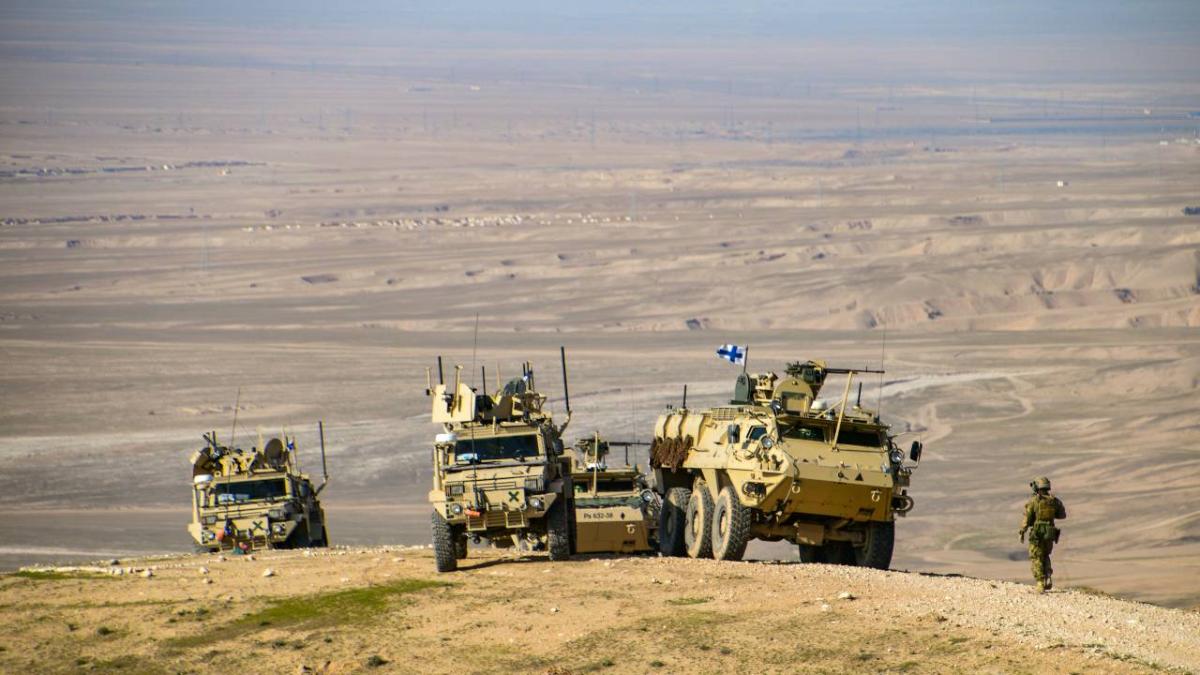Study on lessons learned from Afghanistan: Adaptive and comprehensive crisis management should be Finland’s goal

The operations carried out in Afghanistan between 2002 and 2021 were some of Finland's most demanding crisis management tasks. A new study examines the effectiveness of Finland’s crisis management operations in Afghanistan from various perspectives and presents recommendations on assessing the impact of comprehensive crisis management.
The “Adaptive and comprehensive crisis management? Finland’s participation in crisis management operations in Afghanistan 2002–2021 and development of effectiveness assessment” study was motivated by a need for information on how crisis management could be better planned and made more effective with respect to the use of resources. The study examined the results, impacts and effectiveness of Finland’s work related to crisis management operations in Afghanistan and looked into how the effectiveness of operations had been assessed in earlier contexts.
Assessing the results of the work carried out in Afghanistan is challenging due to the diverse nature of the operations and shortcomings in the setting of objectives. The report recommends introducing impact assessment methods right from the beginning, while preparing for the operations. The project has developed a systemic method that can be used to guide the planning, implementation and learning evaluation of future operations. Adaptive and comprehensive crisis management also requires a systemic analysis of the situational picture, which brings together many actors in crisis management.
According to the recommendations of the study, Finland should aim to exert influence at the international level to ensure that operations are planned from the beginning according to a systemic approach with principles and practices that can be used to create the conditions for sustainable peace. The impact-oriented planning of operations requires a systemic analysis of the target area, which in turn requires the involvement of local actors.
According to the researchers, political decision-makers should also be clearly informed of the effectiveness and impact of operations, not only of the amount of funds used and the number of seconded experts and/or operations. The focus of impact assessment should be shifted from ex-post evaluation to impact-oriented planning and adaptive implementation of operations.
The study, prepared by a consortium led by Comprendum Ltd, was published as part of the implementation of the Government’s analysis, assessment and research plan for 2021. The project steering group consisted of experts from the Ministry for Foreign Affairs, the Ministry of Defence and the Ministry of the Interior.
Inquiries: Tapio Koskimies, Chief Analysis Officer, Comprendum Ltd, tel. +358 50 338 5675, [email protected]
The Government’s joint analysis, assessment and research activities (VN TEAS) produce data used to support decision-making, everyday operations and knowledge-based management. They are guided by the Government’s annual plan for analysis, assessment and research. The content of the reports published in the publication series of the Government’s analysis, assessment and research activities is the responsibility of the producers of the data in question and does not necessarily represent the view of the Government. For more information, visit https://tietokayttoon.fi/en.
Hyvä kysymys -podcast: Mitä Suomi oppi Afganistanista?
More information about the research project (in Finnish)